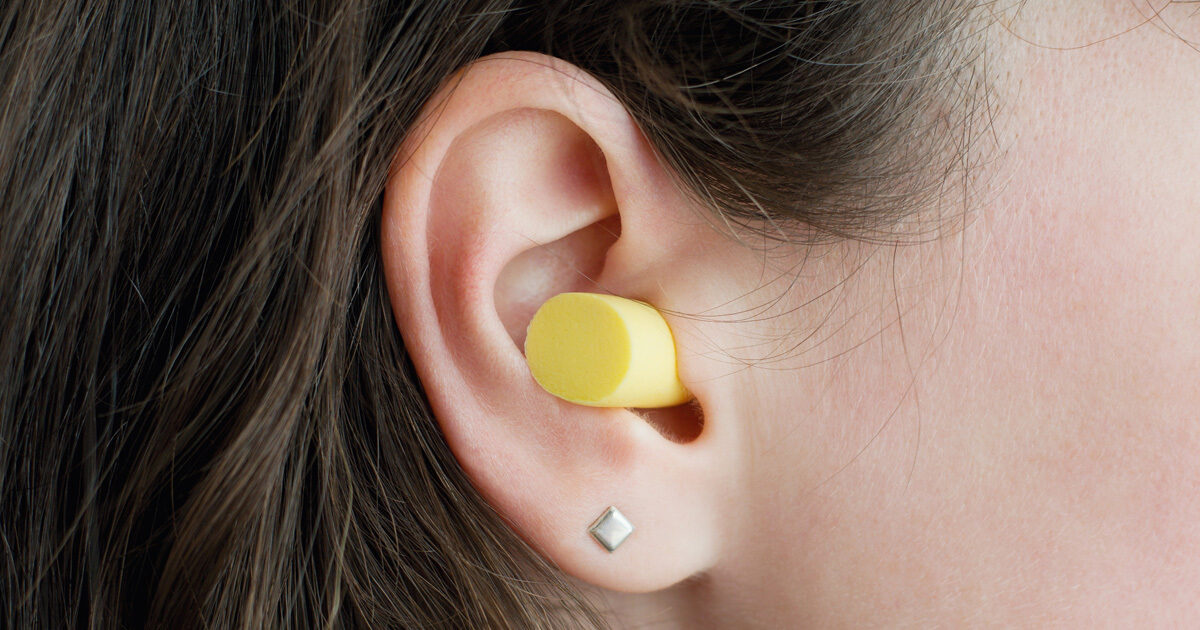Protecting Your Hearing During Festival Season
Tips on preventing hearing loss while attending concerts and festivals
Reviewed by: Sarah Hite, MSN, APRN, FNP-C
Written by: Kaylee Fang

From Austin City Limits to SXSW, music enthusiasts come from all over to enjoy the live events that take place annually in Central Texas. Whether you’re planning to attend your first festival or you’ve become quite the festivalgoer, it’s important to address healthy hearing to ensure you can enjoy the music scene for many more years to come.
Importance of Hearing Protection
Sound is measured in decibels (dB). Safe sounds are considered under 80 dB. Anything under 80 dB will not damage your hearing unless exposure lasts several hours. If you know you are going to be exposed to loud noise, or noise for a prolonged amount of time, you should wear hearing protection to prevent hearing loss. The average outdoor festival ranges from 90 to 100 dB. Inside concert halls can range from 95 to 110 or more dB. At times, the immediate damage is not apparent, but after multiple exposures over a lifetime, you may suddenly notice hearing loss, which could have been prevented.
Noise-Induced Hearing Loss
Exposure to loud noises can be hazardous due to the damage it can cause to the delicate structures in the inner ear. It may result in noise-induced hearing loss that is either gradual or noticed immediately. This type of hearing is permanent and cumulative.
Tinnitus
Frequent exposure to loud music can also lead to a permanent ringing in one or both ears, which is known as tinnitus. Tinnitus is a common condition that affects approximately 15% to 20% of people worldwide. Occasionally, the sound can become so loud that it severely affects cognitive activity as well as cause sleep deprivation and extreme distress. Tinnitus may be present consistently, or it may come and go.
Effects on Young People
Infant and child ear canals are much smaller than those of adults. Therefore, the sound pressure is even greater for them. For instance, if the sound is around 90 dB, then it sounds much louder to them. Given that hearing loss develops over a lifetime, it is even more important for you to protect their hearing.
Explore these tips on how to keep children comfortable and safe at concerts and festivals.
<br>Tips to Prevent Hearing Loss
Consider Ear Protection
Wearing foam earplugs or silicone earplugs doesn’t keep the sound out, but it does reduce it to a safer level. You can still enjoy the music while wearing earplugs or other protective gear. Remember, professional musicians, sound and light engineers, dancers, security, and other professionals who perform at the show wear them all the time. Consider wearing earplugs for as long as you are exposed to noise over 80 dB.
Explore the Venue
When you arrive at the event, make sure to explore your surroundings, so you can locate where the speakers are. While you may be tempted to move closer to the stage, doing so might put your ears directly in front of the blaring speakers. These speakers can produce up to over 110 dB, putting you at risk for permanently damaging your hearing within seconds. It’s still possible to hear the music and enjoy the show from a safe distance.
Limit Alcohol
There is no doubt that many tend to enjoy kicking back at a performance with an alcoholic drink in hand. However, excessive drinking can alter how your body processes sound by harming the auditory cortex. Alcohol consumption also increases the blood flow to your inner ear and raises your blood pressure, which increases the effects of tinnitus. If you decide to consume alcohol while attending a concert or show, moderate your intake.
Explore these tips on how to stay hydrated at concerts and festivals.
<br>Implement Break Times
Implement break times throughout the festivities for the day. Taking a break allows your ears to recover from the noise and reduces your chances of hearing loss.
Ways to add breaks to your schedule:
- Step away in between performances
- Grab food or drinks outside the stage area
- Walk around the venue where the music is not as loud
Prefer Outdoors
As nice weather approaches, more performances are held outdoors. If you have the option, consider outdoor live performances over those held in enclosed spaces. Because the sound is less concentrated outside, it will be gentler on your ears.
Explore these tips on how to safely wind down after attending a concert or festival.
<br>For more information about the Walk-In Clinic, click here or call 1-833-UT-CARES (1-833-882-2737).